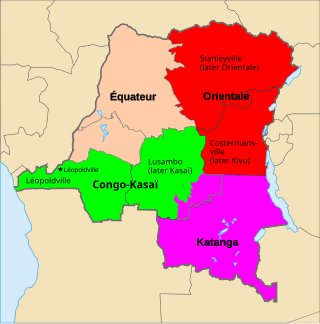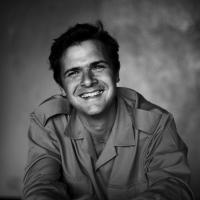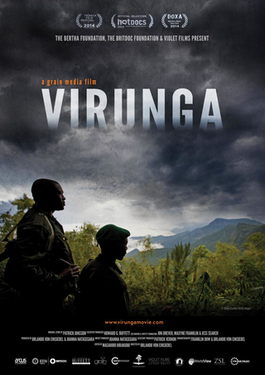| |||||
| Decades: | |||||
|---|---|---|---|---|---|
The following lists events that happened during 1938 in the Belgian Congo .
| |||||
| Decades: | |||||
|---|---|---|---|---|---|
The following lists events that happened during 1938 in the Belgian Congo .
| Date | Event |
|---|---|
| The football club AS Dragons/Bilima is founded in Kinshasa | |
| Kolwezi is founded as the headquarters for the western mining group of the Union Minière du Haut-Katanga . | |
| 13 June | Garamba National Park is established with an area of a 4,900 km2 (1,900 sq mi) in northeastern Democratic Republic of the Congo. [1] |
| 4 August | Jean Nguza Karl-i-Bond, future prime minister of Zaire, is born in Musumba, Lualaba District. |

Katanga was one of the four large provinces created in the Belgian Congo in 1914. It was one of the eleven provinces of the Democratic Republic of the Congo between 1966 and 2015, when it was split into the Tanganyika, Haut-Lomami, Lualaba, and Haut-Katanga provinces. Between 1971 and 1997, its official name was Shaba Province.

The Democratic Republic of the Congo (DRC), also known as Congo-Kinshasa, is a country in Central Africa. By land area, the DRC is the second-largest country in Africa and the 11th-largest in the world. With a population of around 112 million, the Democratic Republic of the Congo is the most populous officially Francophone country in the world. The national capital and largest city is Kinshasa, which is also the economic center. The country is bordered by the Republic of the Congo, Central African Republic, South Sudan, Uganda, Rwanda, Burundi, Tanzania, Zambia, Angola, the Cabinda exclave of Angola and the South Atlantic Ocean.

Équateur was a province in the northwest of the Belgian Congo and the successor Republic of the Congo, now known as Democratic Republic of the Congo. It had its origins in the Équateur District of the Congo Free State, the private property of King Leopold II of Belgium. It was upgraded to the status of a province in 1917. Between 1933 and 1947 it was named Coquilhatville. In 1962 it was divided into three smaller provinces, but there were recombined in 1966. Équateur was one of the eleven provinces of the Democratic Republic of the Congo until 2015, when it was split into the new, smaller Équateur province, as well as the Tshuapa, Mongala, Nord-Ubangi and Sud-Ubangi provinces.

The national flag of the Democratic Republic of the Congo is a sky blue flag, adorned with a yellow star in the upper left canton and cut diagonally by a red stripe with a yellow fimbriation. It was adopted on 18 February 2006. A new constitution, ratified in December 2005 and which came into effect in February 2006, promoted a return to a flag similar to that flown between 1963 and 1971, with a change from a royal blue to sky blue background. Blue represents peace. Red stands for "the blood of the country's martyrs", yellow the country's wealth; and the star symbol the future for the country. It is one of the few national flags incorporating a diagonal line, with other examples including Tanzania, Namibia, Trinidad and Tobago, and Brunei.
Abdoulaye Yerodia Ndombasi was a Congolese politician who served in the government of the Democratic Republic of the Congo as Minister of Foreign Affairs from 1999 to 2000 and as Vice-President from 2003 to December 2006.
The Congolese franc is the currency of the Democratic Republic of the Congo. It is subdivided into 100 centimes. However, centimes no longer have a practical value and are no longer used. In April 2022, 2,000 francs was equivalent to US$1.

Garamba National Park is a national park in the north-eastern Democratic Republic of the Congo covering nearly 5,200 km2 (2,000 sq mi). It is among Africa's oldest parks and was designated a World Heritage Site by UNESCO in 1980 for its protection of critical habitat for northern white rhinoceroses, African elephants, hippopotamuses, and giraffes. Garamba National Park has been managed by African Parks in partnership with the Institut Congolais pour la Conservation de la Nature since 2005.

Article 2 of the Constitution of the Democratic Republic of the Congo divides the country into the capital city of Kinshasa and 25 named provinces. It also gives the capital the status of a province. Therefore, in many contexts Kinshasa is regarded as the 26th province.
Merode may refer to:

Prince Emmanuel de Merode is a conservationist and anthropologist. He has been the director of Virunga National Park in the Democratic Republic of the Congo (DRC) since 2008.

The House of Merode is one of the most prominent families of the Belgian nobility. The House of Merode originates from the village of Merode. Over the last five centuries different branches bore noble titles and had estates on the territories of the modern states of Germany, Belgium, the Netherlands, France and Austria. Through marriage the house is connected with many prominent European noble families. The House of Merode played an important role in the history of the Southern Netherlands and the Kingdom of Belgium.

Case Concerning the Arrest Warrant of 11 April 2000 (Democratic Republic of the Congo v Belgium) [2002] ICJ 1 was a public international law case before the International Court of Justice (ICJ) with a judgment issued on 14 February 2002.

The Republic of the Congo was a sovereign state in Central Africa, created with the independence of the Belgian Congo in 1960. From 1960 to 1966, the country was also known as Congo-Léopoldville to distinguish it from its northwestern neighbor, which is also called the Republic of the Congo, alternatively known as "Congo-Brazzaville". In 1964, the state's official name was changed to the Democratic Republic of the Congo, but the two countries continued to be distinguished by their capitals; with the renaming of Léopoldville as Kinshasa in 1966, it became also known as Congo-Kinshasa. After Joseph Désiré Mobutu, commander-in-chief of the national army, seized control of the government in 1965, the Democratic Republic of the Congo became the Republic of Zaire in 1971. It would again become the Democratic Republic of the Congo in 1997. The period between 1960 and 1964 is referred to as the First Congolese Republic.
This is a survey of the postage stamps and postal history of the Democratic Republic of the Congo, formerly Zaire and the Belgian Congo.

Virunga is a 2014 British documentary film directed by Orlando von Einsiedel. It focuses on the conservation work of park rangers within the Congo's Virunga National Park during the rise of the violent M23 Rebellion in 2012 and investigates the activity of the British oil company Soco International within the UNESCO World Heritage Site. Soco International ended up officially exploring oil opportunities in Virunga in April 2014. The film premiered at the Tribeca Film Festival on 17 April 2014. After airing on Netflix, it was nominated for an Academy Award for Best Documentary Feature.
The following is a timeline of the history of the city of Bukavu, Democratic Republic of the Congo.

Democratic Republic of the Congo–Turkey relations are the bilateral relations between the Democratic Republic of the Congo and Turkey. Turkey has an embassy in Kinshasa since 1974, and the DR Congo opened its embassy in Ankara in 2011.
The following lists events that happened during 1920 in the Belgian Congo.